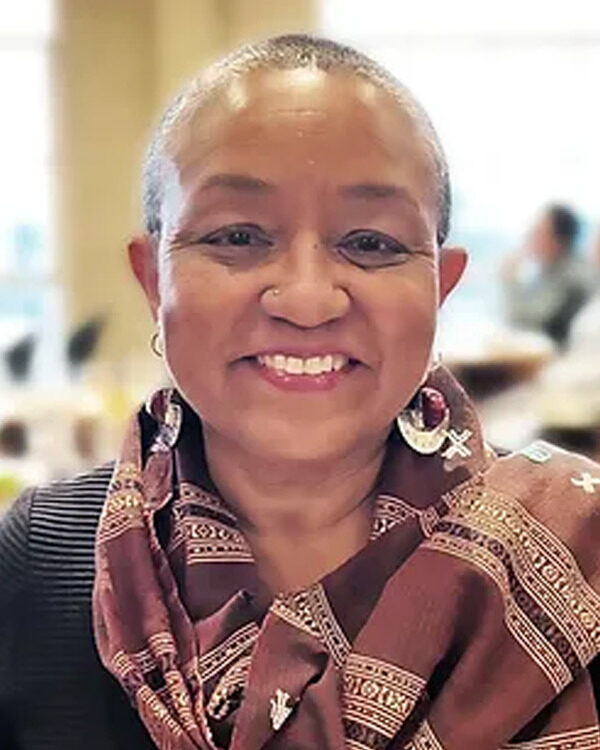Noliwe Alexander is a teacher of various sitting groups around the San Francisco Bay Area and facilitates community workshops and Buddhist meditation daylongs and class series. She is a graduate of Spirit Rock's CDL4 program and completed EBMC's Commit 2 Dharma program in 2010. Noliwe has been a member of Spirit Rock's Diversity Working Committee (DWC) since 2013.
SR: How did you come to the Dharma?
NA: I found meditation in the 70s. I dipped my feet into TM but it didn’t quite click for me. Years later I started sitting with a group where I was living in Durango, Colorado, and I felt at that time meditation could potentially change my life. I found the Dharma over 15 years ago. I was interested in looking at my own individual suffering and I was ready for shifts and changes, not just on the surface, but rather deep lifelong shifts. I sat my first residential retreat in 2000. It was Spirit Rock’s second People of Color retreat. I was invited by my friend Ruth King, who encouraged me to sit the retreat. I had just moved from Colorado to California.
I had an inclination to move my life in the direction of the Dharma. I wish there was a panacea that would make everything easy, but it was difficult to settle my mind. It was difficult to understand the teachings at first because the language used was something I was not familiar with. Suffering, Liberation, Awareness of the present moment, all words I knew but had not yet embodied.
After coming to the Dharma, I absolutely noticed shifts occurring in my life. I love the idea and practice of silence and watching the true nature of my mind.
I realized that much of my suffering was wrapped around my desire to cling and my attachment to the outcome I wanted. When I began to practice freeing myself from my clenching, I started seeing gradual yet powerful shifts in my life and ultimately things began to unfold so beautifully for me.
SR: What is most alive in your practice right now?
NA: Right now I have a strong inclination towards the brahmavihāras. For the past few years I have noticed more mudita, seeing the joy in others and witnessing how that acute awareness responds in my life.
SR: Please share your vision for Spirit Rock in the next ten years.
NA: I really envision Spirit Rock becoming much more accessible from the aspect of cultural competency, affordability, and inclusivity for teachers, sangha, staff, and board members. Competent training of teachers, staff, and the community is necessary so that there is a richness in how language and interactions begin to develop. We have to hold that as a possibility. In fact, it is an urgent need. It is up to the individual to make shifts and Spirit Rock has a responsibility to develop the platform where deep connections occur for the entire Spirit Rock community.
SR: What are some ways the Diversity Working Committee has impacted Spirit Rock?
NA: One shift I have already seen occur is the inclusion of new phraseology on the residential application forms to include options of gender equality and ways people in society want to be seen. The Diversity Working Committee has been on the forefront of that move forward, among others. We all have got to become much more attuned to our individual and collective suffering. Through Spirit Rock and EBMC sanghas we can begin to look at healing some of the harm that has been caused by unconsciousness and we are on the forefront of doing that. I want to see that kind of effort not just talked about but done. This is the time. If not now, then when? There is a cultural shift in consciousness happening and Western Buddhism needs to shift along with it. I am looking forward to seeing the impact of the DWC’s efforts.
I joined the DWC two years ago. Larry Yang, the Chair of the DWC, and my teacher, suggested I might like to become involved. I am also on the board at EMBC. I became involved because I wanted to make sure there were different, unique, and diverse voices to be heard.
